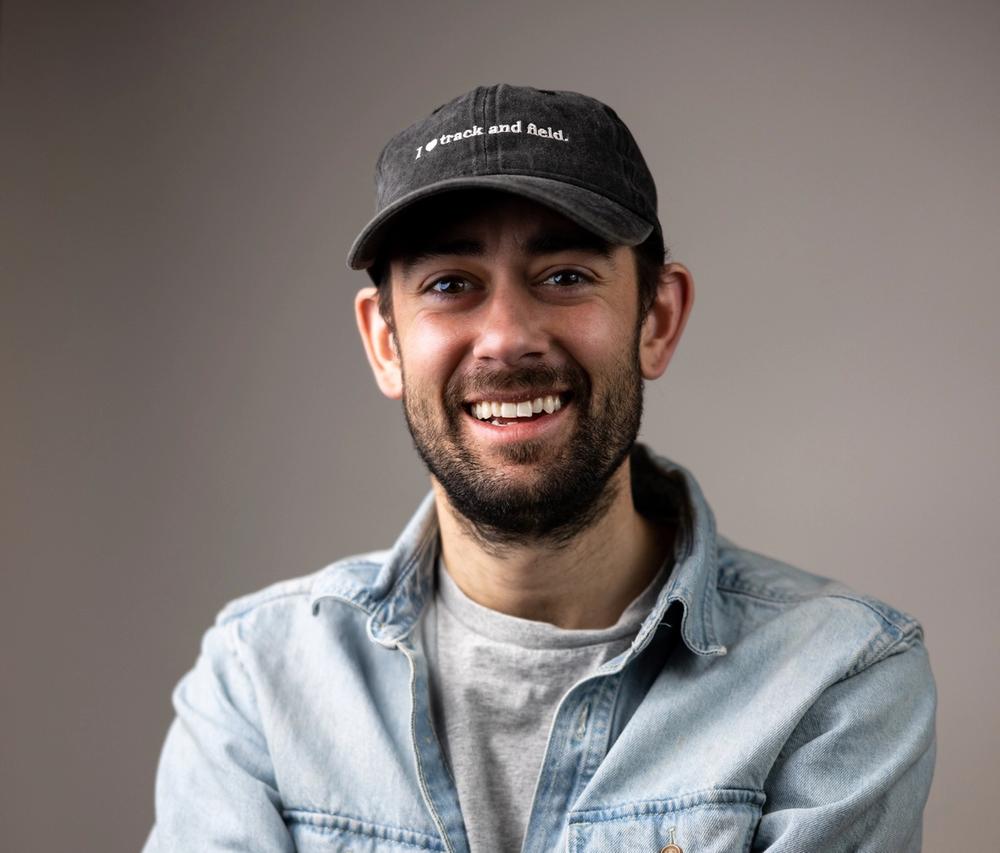By Kyle Merber
June 8, 2022
When I announced my retirement from professional running, I had expected a lineup of companies begging me to come work for them. (There was not.) Instead, there was ample time to consider what I wanted to do next. Initially, it seemed like staying in the sport made the most sense, especially because I assumed that those in it would respect my experience as an athlete the most. (They did not.)
After some early networking conversations I had the epiphany that my passion for running would probably be best protected if, after seven years of it being my work, I did not also make it my job. And so I reflected deeply on what my long-term goals were, and now almost two years later, that remains the same: to be in a position of power to help make the sport a better place. I continue to check LinkedIn for the role of Benevolent Dictator of Track and Field, but it has not yet been posted.
With that vision in mind, I wanted to be in a place that helped me learn things that the sport hadn’t yet taught me. Something I think most brands and governing bodies should do is stop only looking within the industry for solutions. It can be massively beneficial to have a wide range of professional experiences working together toward a common goal. When a running company falls behind, what do they do? They poach talent from a competitor. Well when the sport as a whole needs help, then we need to start looking outside of our own oval-shaped bubble.
That’s why I highlighted American Express as a place I wanted to work. Track and field’s problem is not a lack of talent or entertainment — it’s a lack of effective marketing. Surely a company that has been around for 172 years and that continues to stand out from the pack is doing something right that could maybe be applied to a niche sport!
Thankfully, with the help of some advocates who believed in the value an athlete with an empty resume could bring, I was hired. Immediately upon being thrust into the corporate world it was like drinking water from a fire hose. And I believe that many of the skills that I have since developed sitting at my desk 40+ hours each week have benefited this newsletter and CITIUS MAG.
In that process of gaining an education also came the realization that I did not have to immediately be working in the sport to still have a positive impact. Specifically, my team works on the Amex Offers platform, which helps merchants grow their direct-to-consumer business. By tapping into previous relationships that I developed in the sport, I have been able to help multiple brands in the running space sell more of their product. While one challenge of sponsoring athletes is that it’s hard to measure incrementality — I know I moved some HOKAs off shelves back in the day, but it’s hard to quantify how many. That’s not an issue for me in my current role.
And so my challenge to you as a fan of the sport is to try and discover ways you can make even the smallest positive influence on it from where you are currently seated.
When I stopped training full-time I wrote, ‘I don’t like to say I am retiring — Real runners don’t retire. I’m merely rearranging priorities.’ And that has certainly been true. But it always surprises me how many high-level runners step away from the act entirely once their competitive days are done. I may not be able to run a 3:52 mile anymore, but after spending 20 years of my life harnessing a superpower, I wasn’t about to stop using it completely.
Last week was the JP Morgan Corporate Challenge, which for those who are unfamiliar, is a series of road races held globally for a bunch of suits to compete for bragging rights. As you may imagine, there were some expectations placed upon the shoulders of a former professional runner — so I prepared for it by running the occasional workout.
The race went well and I ended up winning the 2.6-mile race in Central Park in a time that is certainly not worth bragging about. But then a really cool thing happened — a ton of colleagues reached out to say congratulations, tell stories, or ask for some advice. Sometimes it feels like I am living a double life and under this Clark Kent disguise is a washed-up Superman, however, this was a chance to introduce that other side of myself.
After the race, I had the opportunity to shake hands and show off the medal to a couple of the top executives in the company. If it weren’t for me being a fast runner, then I would have never had the pleasure of meeting them. So how did I decide to use my time to talk with my boss’s boss’s boss? I shared with them why I thought American Express should start sponsoring athletes and events in the sport.
The Lap Count is a weekly newsletter delivered on Wednesday mornings that recap all the fun action from the world of track & field. It’s a great way to keep your finger on the pulse of the sport. There is a lot happening and this newsletter is a great way to stay up to date with all the fun. Subscribe today.

Kyle Merber
After hanging up his spikes – but never his running shoes – Kyle pivoted to the media side of things, where he shares his enthusiasm, insights, and experiences with subscribers of The Lap Count newsletter, as well as viewers of CITIUS MAG live shows.